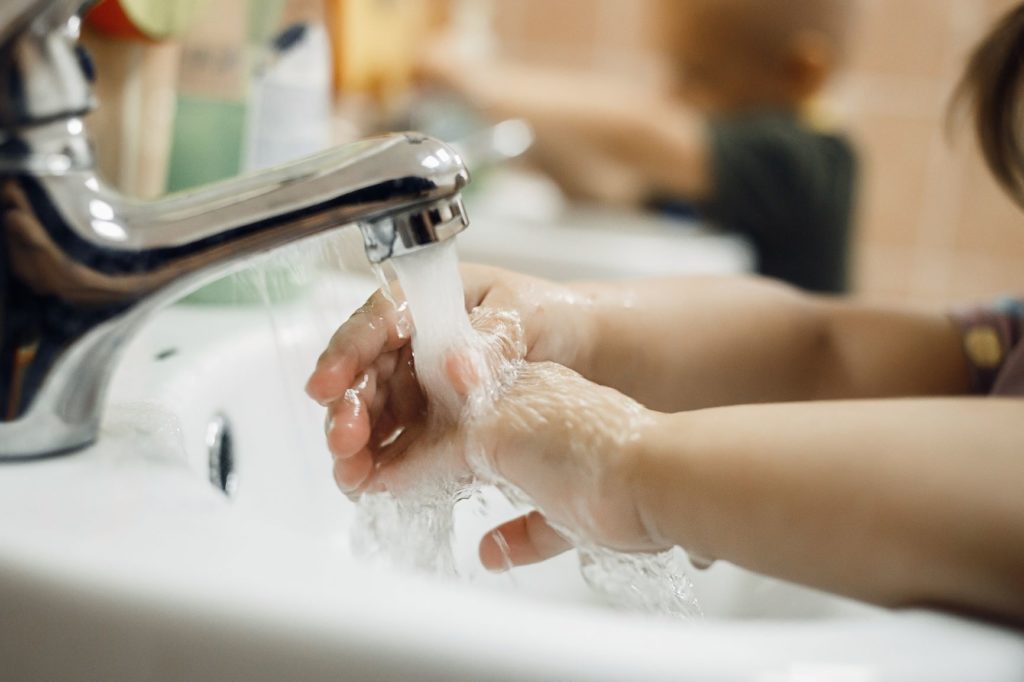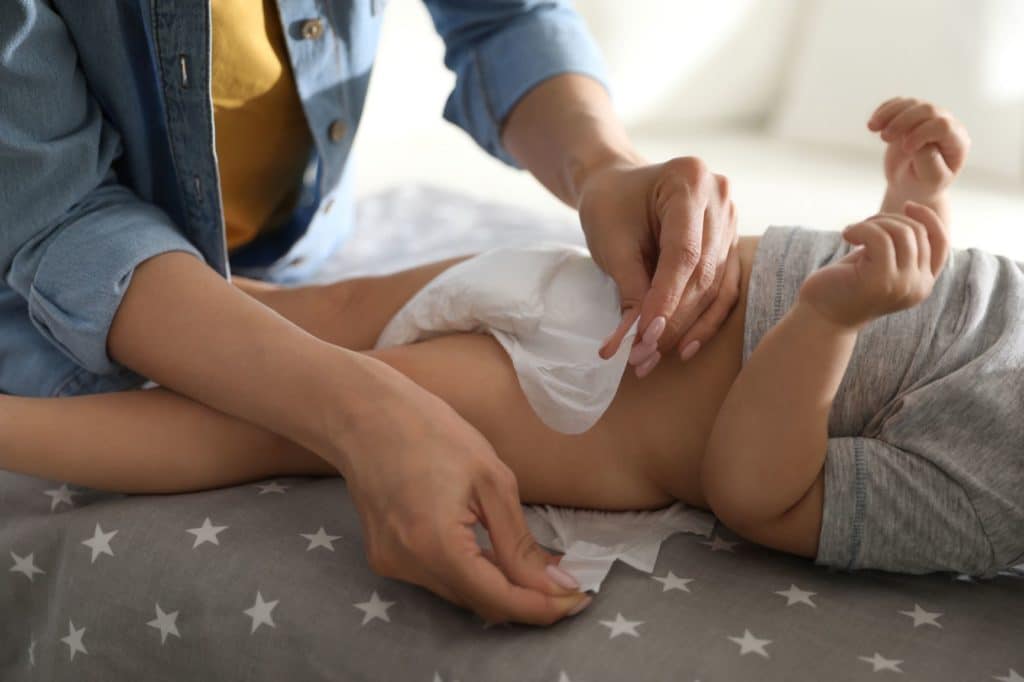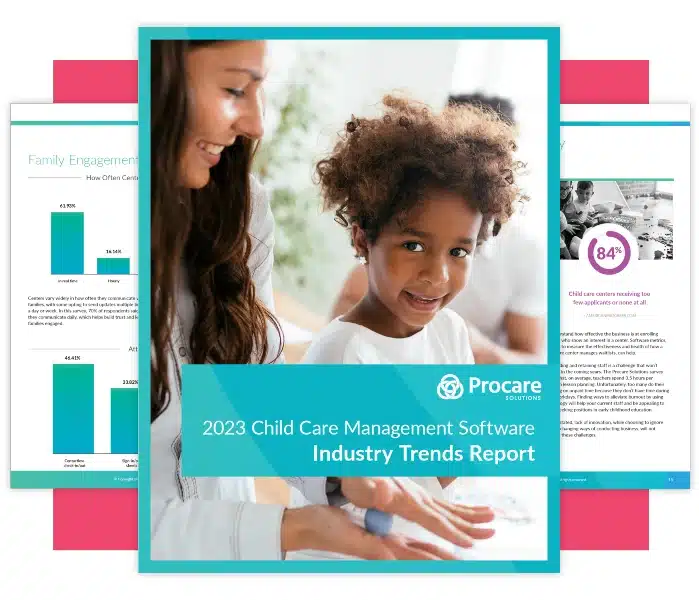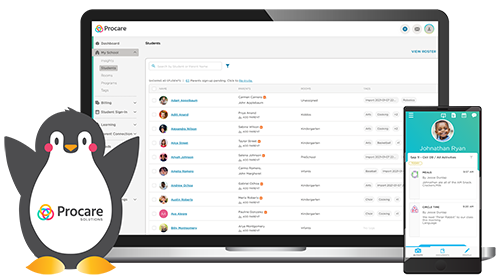
Now more than ever, child care providers are focusing on maintaining good hygiene. As kids return to child care in 2021, we all want to do everything possible to keep them and ourselves healthy and safe.
Even at the best of times, child care centers are places where germs can spread easily between little hands. Meal preparation, diapering, class pets, outdoor play and everyday illnesses are all potential sources of germs, which need to be approached hygienically. The most diligent child care providers recognize the importance of hygiene in child care – both for maintaining health and safety at the center, and for helping kids develop healthy hygiene habits for the future.
In this post, you’ll learn about the meaning and importance of hygiene at the child care center, what you need to know about hygiene best practices for child care providers, and our child care experts’ tips for how to pass on healthy hygiene habits to kids.
What is Hygiene?
Good hygiene is not just using hand sanitizer, it’s a way of thinking that spans across all aspects of child care. Hygiene means all the practices you follow to maintain cleanliness, sanitation and good health at your center. This can include everything from frequent hand washing, to food safety protocols, to staying home when sick. Even exercise and regular sleep can be considered aspects of hygiene.
Both child care providers and children benefit from the practice of hygiene. For child care providers, hygiene means maintaining the center in a state of cleanliness, keeping up personal hygiene habits to prevent the spread of germs, and modeling good hygiene to kids. For kids, learning hygiene in the bathroom, at the dinner table and elsewhere establishes healthy habits they’ll take to kindergarten and beyond.
With all the opportunities for germs to spread at a child care center, the importance of hygiene can’t be stressed enough: good hygiene helps kids, child care providers and parents stay safe, healthy and happy. Let’s take a look at some of the most important benefits of hygiene.
Why is Hygiene Important in Child Care?
Good hygiene is a fundamental practice of child care. Taking the time to develop hygiene procedures manifests your caring for your staff, the children at your center and their families.
Illnesses like colds abound at child care centers, so hygiene helps reduce cross-infection between kids and child care staff. While exposure to illness is always possible, minimizing the risk helps prevent absences of both kids and providers, and keeps sickness from spreading in your community.
With activities like diapering and food preparation going on in the same facility, hygiene is critical for keeping kids clean and healthy. Careful attention to food safety and hygienic toileting procedures prevent foodborne illness and contamination from germs.
Responsible hygiene also teaches kids good habits that they will benefit from for life. Oral hygiene, for instance, sets kids up to have good oral health into adulthood. Habits like these help kids start to practice self-care, which teaches them to nurture themselves and builds their self-esteem.
Hygiene Best Practices for Child Care Providers

Child care providers must practice hygiene to reduce the possibility of contamination and help kids be as healthy as possible. Here, we’ve outlined how to maintain good hygiene at your center in four areas where hygiene is most critical.
- Diapering: Changing diapers can be a messy business, so it’s important to practice hygiene for your own health, the health of infants and for everyone at your center. Every time you change a diaper, make sure to:
- Cover the diapering surface with a disposable liner
- Wipe the child front to back to prevent infection
- Discard all trash in a covered, lined trash can
- Thoroughly clean and disinfect the diapering surface
- Thoroughly wash your hands
- Meal preparation: The Department of Health and Social Services offers guidance on food safety, including four basic steps everyone can follow for safe food preparation. Washing hands before and after handling food is the first step in food safety. Cleanliness extends to the food environment: always clean surfaces, utensils and dishes after each use, and wash produce before using. Avoid cross-contamination of meats and vegetables, or cleaning chemicals and food. Finally, maintain temperature control of food by cooking foods to temperatures high enough to kill germs and refrigerating food when necessary.
- Infant feeding: Keeping babies’ developing teeth healthy requires special attention to feeding. Always serve breast milk or infant formula to babies, never juice. Water should be offered to babies over six months of age. Hold babies while feeding them, and never put babies to sleep with bottles or sippy cups, or prop a bottle into the mouth.
- Routine cleaning and disinfection: All areas of your child care center, and items such as toys and furniture, should be cleaned and disinfected regularly. This keeps your center looking and smelling good, and free from harmful microbes. Make sure to use disinfectants that kill germs while still being safe for little ones.
How Do Kids Learn Hygiene?
There are many opportunities in a child care center for kids to learn good hygiene from grownups. Practicing good hygiene yourself is the best way to convey its importance to kids — kids learn best when you model good behavior. As a role model for kids, take care to practice what you preach when it comes to hygiene.
Posters and lessons are a great way to emphasize hygiene in the classroom. Place instructional posters on hand-washing and teeth-brushing near sinks and toilets so kids will have a visible reminder of the hygiene practices they need to follow. Take time once or twice a year in your lessons to cover hygiene.Finally, make sure kids are practicing hygiene by monitoring their compliance on a day-to-day basis and instructing them one-on-one when necessary. Washing hands with a grownup can be a fun activity that reinforces the importance of hand health.
Which Hygiene Habits are Most Important for Kids?
- Hand Washing: Everyone, no matter how small, needs to wash their hands after using the bathroom and before and after handling food. Kids are also still learning where it’s acceptable to put their fingers, and are likely to get involved in unsanitary activities that can make their hands dirty. Encourage frequent hand washing, both to prevent illness and to keep classroom furniture and toys free from sticky messes.
- Safe Coughing/Sneezing: Coughing and sneezing safely means covering the nose and mouth with the elbow, instead of the hand. Safe coughing and sneezing can be a fun game for kids, since it resembles a vampire raising his cape. Teach kids the “vampire sneeze” and let them laugh like Count Dracula afterward, so that they’ll never forget to use their elbow!
- Oral Hygiene: Baby teeth matter just as much as adult teeth, so it’s important for kids to brush frequently. Each child should have their own toothbrush that is replaced every 3-4 months, and brush after meals with a small amount of toothpaste.
- Bathroom Hygiene: The smallest children need help and guidance in the bathroom to make sure they practice good hygiene. Ensure that they wipe themselves after each time they use the bathroom, and always front to back. And of course, they’ll need to wash their hands afterward.
- Food Hygiene: Hand washing before and after meals helps kids keep from getting sick and spreading messes in your center. Kids need to know that they shouldn’t eat food that’s been lying around, because even if it looks and smells OK, it can grow bacteria that might make them sick. Encourage them to not lick their fingers while eating, and involve them in the cleanup process so they can understand the importance of food hygiene.
Help Encourage Healthy Hygiene Habits with Procare Solutions

While you’re refreshing your knowledge of hygiene and cleaning best practices at your center, why not do a cleanup of your administrative processes as well? Procare’s trusted child care software will help you implement hygiene best practices and easily manage every part of your center.
Whether it’s monitoring staff-to-child ratios to ensure each child gets the proper hygienic attention and education, updating parents as kids develop hygiene skills and habits, or using our contactless check-in for hygienic pick-up/drop-off, Procare has the tools you need to promote a safe and hygienic environment at your center.
Ready to see for yourself how Procare can help?





